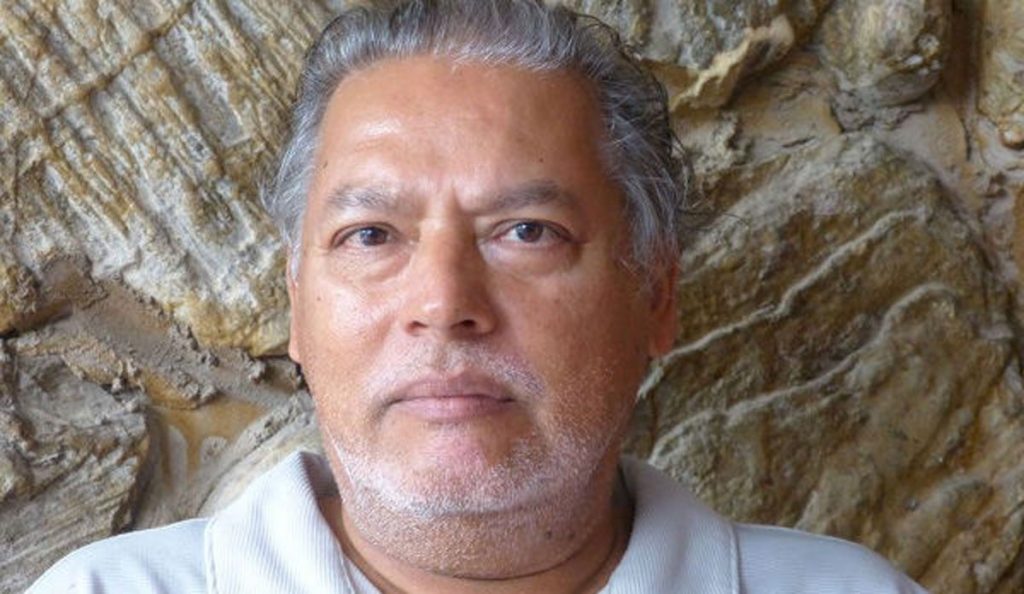I first met Kamal Persad at an Indian Arrival Day procession in Sangre Grande in the 1980s sponsored by the Hindu Seva Sangh. He was in the company of Kumar Mahabir and Ashram Maharaj and they were distributing copies of the Indian Review Magazine.
The Indian Review worked with the Hindu Seva Sangh in several public programs between 1985 to 1995 to develop Indian Arrival Day into a public holiday. In addition to providing copies of the magazine to the public, Kamal Persad and Ashram made representation before a Parliamentary Committee to provide support for May 30 being declared a national holiday. I recalled Kamal commenting that “no other public holiday went through such scrutiny and debate as Indian Arrival Day.”
Over the years my relationship with Kamal and other members of the Indian Review strengthened and we began socializing and engaging in discussions on a more regular basis. I recalled Kamal visiting me one Sunday evening and I mentioned to him that I have drafted a ‘letter to the editor.’ That afternoon Kamal sat before my computer and without modifying my thoughts simply ‘tightened’ my writing which was later forwarded to the newspaper as a ‘letter to the editor.’ To my astonishment the article was published and that was the beginning of my writing career if I am to say so.
I went on to write several letters in the newspapers and Kamal never hesitated to praise my writing skills. When I was researching the material for the writing of ‘Doon Pandit’ Kamal advised that the material gathered was limited. With this advice I continued my research until I was presented with a folder with many clippings on Doon Pandit. I also came into contact with several people who knew Doon Pandit and interacted closely with him.
Kamal had a column with the Sunday Express that ran for two years. His writings were centered on Black racism against Indians with a focus on Dr Eric Williams and the PNM. Whatever Kamal put out in his column was factual and could not be refuted. Many charged that he was a ‘racist’ but could not respond academically to his writings.
When the then editor told Kamal that he is stopping his column, he failed to provide any concrete reason but was very hostile in his tone of speech. Nevertheless, Kamal was replaced by a high standing professional and his column was aborted after the first issue. The Express was later successful in finding writers in the Indian community who were more willing to bash Hindu leaders like Sat Maharaj and politicians like Basdeo Panday and Trevor Sudama while turning a blind eye to State discrimination against the Indian community.
Kamal’s hero was H.P Singh, a popular India journalist who wrote on the 1950s and 1960s against the discriminatory policies of the PNM against the Indians. Kamal along with Ashram published a text with an extended introductions and the writings of H.P. Singh which was welled received.
A teacher by profession, Kamal was not a willing friend of any politician or public figure at the expense of his ideological position. He understood that politicians were always willing to compromise for political gains and so was much critical of them. When the NAR government opposed the call for Indian Arrival Day to be declared a public holiday, Kamal was unsparing in his exposure of their hypocrisy. Given the cult nature of the society, Kamal incurred the wrath of several ‘cult’ leaders who felt that Kamal was upsetting the proverbial apple cart.
In the course of his research, Kamal visited the children of several Indian activists of the 1930s, 1940s and 1950s and was appalled at their ignorance of the contributions of their forbears and more fundamentally their lack of interest in wanting to know. Unfortunately, this has become the norm as today the younger generation do not seem to value the social and political struggles of their ancestors but naively think that someone else should make things right for them as their parents have done while growing up.
Kamal’s passing was sudden- heart attack- and he is survived by his wife and children, his brothers and his ailing mother who is in her 90s. Kamal’s dream would be that his legacy continues and that his family and relatives would take up the baton of activism to improve the social lot of the Indian community not only in Trinidad but the entire southern Caribbean including Guyana and Suriname. His thoughts on the future of Indians were articulated in his concept of Bharatiya Desh-a confederation of the three Caribbean states-that shares a unique but common experience among its varied ethnicities.
The legacy of Kamal Persad has to be continued by compiling his essential writings to make them available for the present and forthcoming generation. His writings are still relevant today as the discrimination that he fought against continues to rage in Bharatiya Desh. Kamal’s writing would certainly inspire the new generation to rise up to the challenges at hand.
